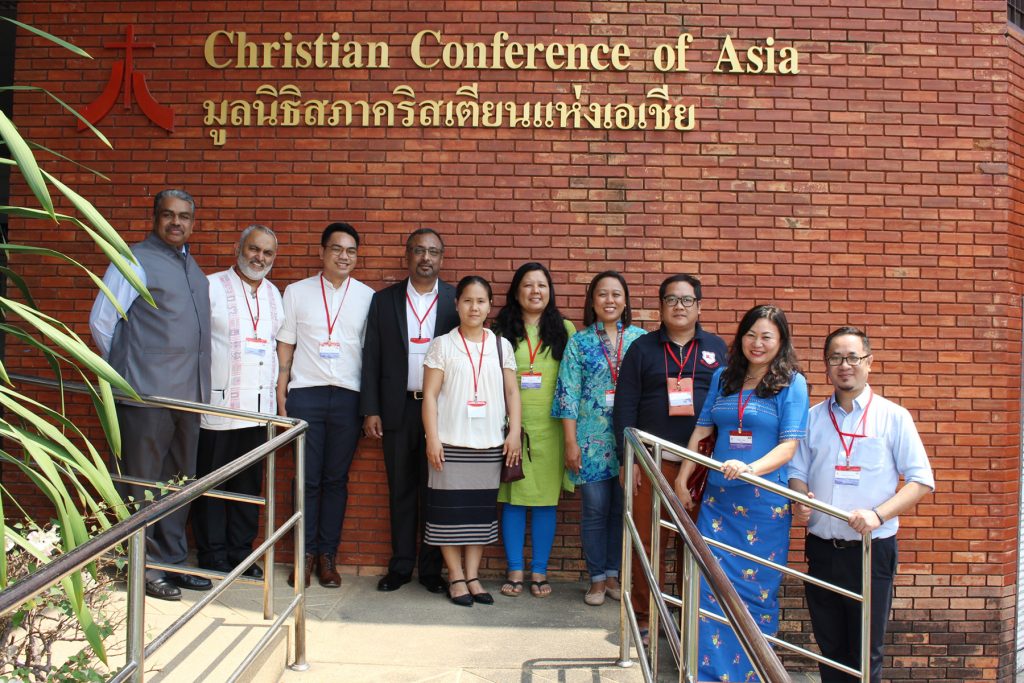CCA Develops Module on Effective Advocacy to Combat HIV and AIDS

As part of the special HIV and AIDS programme, Action Together to Combat HIV and AIDS in Asia – ATCHAA, the Christian Conference of Asia (CCA) developed a module to help the churches and ecumenical councils in Asia to be engaged in effective advocacy to combat HIV and AIDS.
The workshop organized by CCA with expert assistance from the United Nation’s AIDS (UNAIDS) programme, was held from 12 to 14 March 2018 at the CCA headquarters in Chiang Mai, Thailand.
Participants of the workshop included experts working in in the field of HIV and AIDS advocacy from the UNAIDS, National Council of Churches, Christian hospital networks, Social development organisations and Christian mission agencies.
Dr Salil Panakadan of the UNAIDS Regional Office for Asia and the Pacific in a presentation outlined the situation of HIV and AIDS problem in Asia. Dr. Salil described how the the prevalence trend is increasing in some Asian countries.
The role of Churches and Faith-Based Organizations in complementing and contributing to the advocacy initiatives at the global, regional and local levels to combat HIV and AIDS was a key concern discussed at the workshop.
The Contextual Bible Studies presented were prime resources for motivating Churches to respond effectively to HIV and AIDS.
While sharing the best practices from the region in responding to HIV and AIDS, the participants opined that “the menace of HIV and AIDS is evident everywhere, in communities, churches and around all of us, and the churches need to be instruments of initiating healing processes for those who are infected and affected”.
“Churches, ecumenical Councils and Christian organisations have to play important roles in reducing the stigma and discrimination, for which churches should focus on providing psycho-social support as well as access to testing, treatment, care and support”, they expert group suggested.
Dr. Ronald Lalthanmawia, and Mr. Jay Roy Tipayan Coordinators of ATCHAA facilitated the workshop and said, CCA will organize a series of activities in the coming months as part of the ATCHAA to combat the HIV and AIDS in Asia.










